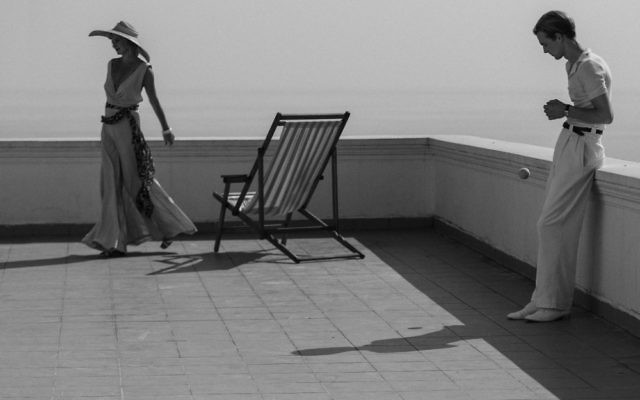AJFF: ‘Paradise’ Lost and Found
By Josh Jacobs
“Paradise,” Andrei Konchalovsky’s latest fare and winner of the Silver Lion at Venice last summer, is an arresting and uncomfortable depiction of the Holocaust and paints an unrelenting portrait of the futility of its devastation.
Shot in black and white in a 4:3 aspect ratio and set off by flashbacks, “Paradise” is told through confining, documentary-style confessionals of three irrevocably connected characters as they work through their sins to settle their lives before something occurs, which we later realize is death. Konchalovsky succeeds well enough that “Paradise” is Russia’s submission for the Oscar for best foreign language film this year.

While I struggled with a waning attention span, Konchalovsky uses every second of the 131-minute film to trap the audience in the disasters his characters experience. With long takes and an aversion to close-ups, he can treat the audience as a (mostly) unspoken character, someone whose omnipotence is notable in each character’s journey.
In a high-concept move, Konchalovsky integrates the audience into the framework of the narrative, reminding us that we are all an audience for one another and that we can forgive and we can transgress because we are human.
The three characters are Olga (a member of the French Resistance), Jules (a French Nazi collaborator) and Helmut (a high-ranking officer of the SS); their intersection is Olga’s arrest.
She has been hiding and protecting Jewish children from the Nazi regime, and Jules is assigned her case.
While she offers all that she has to protect the children from the Nazis, it isn’t enough for Jules, who is so blinded by money and power that he turns her over to the party.
As Olga moves toward what seems an inevitable martyrdom, “Paradise” drives home the compelling concept that everything is connected.




comments